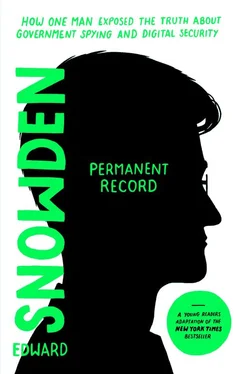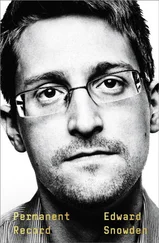If I didn’t do any homework but aced everything else, I’d wind up with a cumulative grade of 85, a B. If I didn’t do any homework or write any term papers but aced everything else, I’d wind up with a cumulative grade of 70, a C-minus. The 10 percent that was class participation would be my buffer. Even if the teacher gave me a zero in that, I could still manage a 65, a D-minus. I’d still pass.
My teachers’ systems were terminally flawed. Their instructions for how to achieve the highest grade could be used as instructions for how to achieve the highest freedom—a key to how to avoid doing what I didn’t like to do and still slide by.
The moment I figured that out, I stopped doing homework completely. Every day was bliss. Until Mr. Stockton asked me in front of the entire class why I hadn’t handed in the past half dozen or so homework assignments. I cheerfully offered my equation to the math teacher.
“Pretty clever, Eddie,” Mr. Stockton said, moving on to the next lesson with a smile.
I was the smartest kid in school—until about twenty-four hours later, when Mr. Stockton passed out the new syllabus. This stated that any student who failed to turn in more than six homework assignments by the end of the semester would get an automatic F.
Pretty clever, Mr. Stockton.
Then he took me aside after class and said, “You should be using that brain of yours not to figure out how to avoid work, but how to do the best work you can. You have so much potential, Ed. But I don’t think you realize that the grades you get here will follow you for the rest of your life. You have to start thinking about your permanent record.”
* * *
I also did some more conventional—computer-based—hacking. As I did, my abilities improved. At the bookstore, I’d page through tiny, blurrily photocopied, stapled-together hacker zines, absorbing their techniques, and in the process absorbing their antiauthoritarian politics.
People still ask me why, when I finally did gain some hacking proficiency, I didn’t race out to empty bank accounts or steal credit card numbers. The honest answer is that I was too young and dumb to even know that this was an option, let alone to know what I’d do with the stolen loot. All I wanted, all I needed, I already had for free. Instead, I figured out simple ways to hack some games, giving myself extra lives and letting me do things like see through walls. Also, there wasn’t a lot of money on the internet back then, at least not by today’s standards.
If you asked some of the big-shot hackers of the day why, for example, they’d hacked into a major news site only to do nothing more meaningful than replace the headlines with a goofy GIF that would be taken down in half an hour, the reply would’ve been a version of the answer given by the mountaineer who was asked his reason for climbing Mount Everest: “Because it’s there.” Most hackers, particularly young ones, set out to search for the limits of their talent and any opportunity to prove the impossible possible.
I was young, and while my curiosity was pure, it was also pretty revealing. The more I came to know about the fragility of computer security, the more I worried over the consequences of trusting the wrong machine. My first hack that ever courted trouble dealt with the fear of a full-on, scorched-earth nuclear holocaust.
I’d been reading some article about the history of the American nuclear program, and before I knew it, with just a couple of clicks, I was at the website of the Los Alamos National Laboratory, the country’s nuclear research facility. That’s just the way the internet works: You get curious, and your fingers do the thinking for you. But suddenly I was legitimately freaked out: The website of America’s largest and most significant scientific research and weapons development institution, I noticed, had a glaring security hole. Its vulnerability was basically the virtual version of an unlocked door. Within a half hour of reading an article about the threat of nuclear weapons, I’d stumbled upon a trove of files meant only for the lab’s security-cleared workers.
To be sure, the documents I accessed weren’t exactly the classified plans for building a nuclear device in my garage. (And, anyway, it’s not as if those plans weren’t already available on about a dozen DIY websites.) Still, as someone suddenly worried about nuclear war, and also as the child of military parents, I did what I figured I was supposed to: I told an adult. I sent an explanatory email to the laboratory’s webmaster about the vulnerable files and waited for a response that never came.
Every day after school I visited the site to check if it had been updated, and it hadn’t—nothing had changed, except my capacity for shock and indignation. I finally called the general information phone number listed at the bottom of the laboratory’s site.
An operator picked up, and the moment she did, I started stammering. She interrupted with a curt “Please hold for IT,” and before I could thank her, she’d transferred me to a voice mail.
By the time the beep came, I’d regained some confidence, and I left a message. I think I even spelled out my name, like my father sometimes did, using the military phonetic alphabet: “Sierra November Oscar Whiskey Delta Echo November.” Then I hung up and went on with my life, which for a week consisted pretty much exclusively of checking the Los Alamos website.
Nowadays, given the government’s cyber-intelligence capabilities, anyone who was pinging the Los Alamos servers a few dozen times a day would almost certainly become a person of interest. Back then, however, I was merely an interested person. I couldn’t understand—didn’t anybody care?
Weeks passed until one evening, just before dinner, the phone rang. My mother, who was in the kitchen making dinner, picked up.
I was at the computer in the dining room when I heard it was for me: “Yes, uh-huh, he’s here.” Then: “May I ask who’s calling?”
I turned around in my seat, and she was standing over me, holding the phone against her chest. All the color had left her face. She was trembling.
Her whisper terrified me. “What did you do?”
Had I known, I would have told her. Instead, I asked, “Who is it?”
“Los Alamos, the nuclear laboratory.”
“Oh, thank God.”
I gently pried the phone away from her and sat her down. “Hello?”
On the line was a friendly representative from Los Alamos IT, who kept calling me Mr. Snowden. He thanked me for reporting the problem and informed me that they’d just fixed it. I restrained myself from asking what had taken so long—and from reaching over to the computer and immediately checking the site.
My mother hadn’t taken her eyes off me. I gave her a thumbs-up, and then, to further reassure her, I explained to the IT rep what he already knew: how I’d found the problem, how I’d reported it, how I hadn’t received any response until now. I finished up with, “I really appreciate you telling me. I hope I didn’t cause any problems.”
“Not at all,” the IT rep said, and then asked what I did for a living.
“Nothing really,” I said.
He asked whether I was looking for a job, and I said, “During the school year, I’m pretty busy, but I’ve got a lot of vacation and the summers are free.”
That’s when he realized that he was dealing with a teenager. “Well, kid,” he said, “you’ve got my contact. Be sure and get in touch when you turn eighteen. Now pass me along to that nice lady I spoke to.”
I handed the phone to my anxious mother, and she took it back with her into the kitchen, which was filling up with smoke. Dinner was burned, but I’m guessing the IT rep said enough complimentary things about me that any punishment I was imagining went out the window.
Читать дальше












